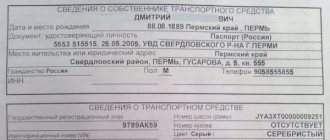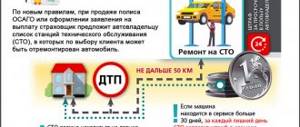Today, insurance companies very often refuse to pay insurance compensation. It happens that the insurer is right and the client is really not entitled to payment, but most often the refusal is made unlawfully, violating all the rules of the law. If the insurance company has refused to pay out under CASCO, what to do in this case will be discussed further.
Can the insurance company refuse to pay?
Any insurer has the right to refuse to pay insurance compensation. This is provided not only in the text of the insurance contract and insurance rules, but also in the Civil Code of the Russian Federation, as well as the law “On the organization of insurance business”.
Reasons for refusal to pay under CASCO:
- gross violation of traffic rules by the policyholder (for example, drunk driving);
- transport malfunction even before an accident or other insured event;
- unauthorized repairs without agreement with the insurer;
- permission to drive persons not specified in the insurance;
- violation of the loss settlement procedure described in the policy.
This is not a complete list of reasons for refusal. The reason may be non-payment of an insurance contract (for example, insurance for a credit car, which is renewed every year), obvious violations of the rules on the road (exceeding the speed limit, running a traffic light, crossing a double solid line and driving into oncoming traffic), an attempt at insurance fraud (rigged Road accident or overestimation of damage) and much more.
Sometimes an event is simply not recognized by the insurer as insurable. For example, if the car was scratched by animals, and the risk of falling icicles, hail or hooliganism was insured, then, naturally, a refusal will follow. The company also does not recognize the case of car theft from a yard or other place as insurance if the contract clearly states that it should have been stored only in a guarded parking lot.
Refusal for all the above reasons will be considered absolutely lawful. But there are also controversial grounds for refusal, which can be easily appealed in court. For example, these include the refusal to compensate for the loss of commodity value, which is real damage under civil law.
If the insurance does not indicate the risk of theft, the insurer has the right to refuse payment if the policyholder's car disappears.
Illegal reasons for refusal
According to current Russian legislation, the policyholder may go to court if his insurance company refuses to compensate for material damage upon the occurrence of an insured event.
The court recognizes the actions of insurers as illegal if the reason for the refusal was:
- The driver does not have a vehicle inspection certificate. From the point of view of the law, the absence of a coupon or other registration documents is not a reason for refusal;
- loss of policy. Modern accounting of policies is carried out in such a way that insurers enter all data on them into a single information database. Therefore, they can easily obtain a duplicate of the contract;
- When an insured event occurred, the car was driven by a driver who was not listed in the policy. This applies to situations where the policyholder includes only his relatives in the policy, but he himself is not there;
- late submission of an application for reimbursement. If this fact occurred for a good reason, for example, the owner of the car was sick or was undergoing hospital treatment, then the insurer does not have the right to refuse him;
- the company cannot press charges against the person responsible for the incident. For example, at night an unknown person scratched the body of a car. Of course, its owner contacts the police, but does not agree to initiate criminal proceedings. Then the insurer cannot make a claim against the culprit because no one is looking for him;
- unintentional distortion of information. For example, if the owner wrote in the statement that his car was stolen, but not stolen;
- the car owner did not receive information about installing an anti-theft device or the notification was received with distortions;
- The package of documents for the vehicle has been partially collected. This applies not only to the theft of a car in which all the documents were left, but to all other cases;
- before the inspection by a representative of the insurance company, the owner repaired the car;
- The car number has been changed by the owner.
Errors when handling and reporting road accidents
After an accident, you must stop the car, turn on the emergency lights and put up a warning triangle (at least 15 meters from the car in the city and 30 meters outside it). If there are victims, you should call an ambulance immediately.
Next you need:
- report the accident to the traffic police and the insurer (phone numbers are in the policy);
- exchange contacts with other participants in the accident;
- take a photograph of the accident scene;
- collect contact information of witnesses in case of trial;
- wait for the arrival of the emergency commissioner or another representative of the insurer.
The insurer's dispatcher must record the date and time of the accident, and also advise what to do next. This is the correct procedure, but not every car owner follows it.
Next, you will need to prepare a written application and submit it to the insurance company. Typically, insurers require that this be done within 5-7 days from the date of the accident, but in the case of theft or theft - within 1-3 days.
Erroneous actions:
- leave the scene of the accident;
- go to the first service station and pay for repairs out of your own pocket;
- violate the application deadlines;
- receive money from the guilty party without knowing the extent of the actual damage.
When registering an accident, it is important to ensure that all formalities are followed. We fill out a notification of an accident with a diagram of the accident directly at the scene of the incident (if there are no victims and the parties decided to resolve the dispute without involving the traffic police) or we monitor the receipt of documents from the traffic police confirming the fact of the accident.
When receiving documents, make sure that their contents are accurate. Any corrections must be certified by an official’s signature and seal.
○ How to avoid problems with CASCO insurance.
When concluding a CASCO agreement with an insurance company, the client must pay attention to the following:
- CASCO price. Typically in the insurance market, full insurance costs from 7 to 12%. If the price is lower, you should think about whether it is a fraudulent company that only collects money but does not pay for insurance claims.
- List of insurance cases. First of all, does the company only compensate for damage or does it make payments for theft and theft too?
- What additional services does the company provide? Often additionally, evacuation from the scene of an accident, the arrival of an emergency commissioner, and the collection of documents from the traffic police are offered. However, these services lead to higher insurance prices.
- Amount of payments. There are two options here: aggregate amount (after partial payment, the contract amount is reduced) and non-aggregate (the amount does not change).
- Payments or repairs? The company may offer to repair the damaged car at its own expense in a service with which it has an agreement - or pay an amount at the expense of which the owner repairs the car himself. Here you need to remember: repairs in an uncertified center can lead to the manufacturer removing the car from service, and insurance companies usually do not work with certified ones.
- Storage conditions. When insuring against theft or theft, companies may require that the car be placed in a secure parking lot and be equipped with an alarm. If so, you need to first determine which specific parking lots will be officially considered guarded: the mere presence of a guard at night does not mean anything.
- Alcohol testing requirement. Companies often require that in the event of an accident, their client always undergoes a medical examination by a narcologist and receives a certificate stating that there is no alcohol in his blood. At the same time, the traffic police officers themselves do not always send for an examination - only in case of serious accidents or when the driver clearly looks drunk. Therefore, it is better to avoid signing an agreement with a condition for mandatory examination.
- Requirement to provide keys and documents for the car in case of theft. Insurance companies often believe that if a driver leaves these things in the car, he must be responsible for his actions and is not entitled to compensation. However, such an opinion is not based on the law, so the client should either demand that this clause be removed from the contract or find another company.
What to do if the insurance company refuses?
If the policyholder did everything correctly, but received a refusal from the insurer, then he can appeal it. To do this, you will need to collect evidence of your case (certificate of an accident, notice and other documents), and prepare a claim. Sometimes it is also necessary to conduct an independent examination of the damage so that there is something to operate in court.
The policyholder must:
- Collect evidence that you are right.
- Prepare the text of the claim in two copies and send it to the insurer.
- If you receive a refusal (after 10-30 days), you can file a complaint with the regulator.
- If the complaint to the regulator does not help, you must file a claim in court.
- Obtain a court decision (on the collection of insurance payments or on refusal to satisfy the claim).
Disputes with the insurance company can drag on for 3-6 months. and sometimes for a year. However, filing a lawsuit does not guarantee a positive result. It is worth deciding on legal battles only if you are firmly convinced that your rights have really been violated.
○ Features of various types of problems with CASCO.
Separately, we need to talk about solving some problems associated with refusal of payments or underestimation of their size.
✔ CASCO for theft.
In the event that a car has been stolen, CASCO is one of the few ways to obtain compensation for harm. However, quite often the following picture occurs: the car owner contacts the insurance company, and there he is asked to enter into a special agreement. The essence of this document is that the owner renounces the rights to the car in favor of the insurance company, and then receives compensation.
This option is acceptable; it is provided for in clause 5 of Art. 10 of the Law of the Russian Federation “On the organization of insurance business in the Russian Federation”. However, this rule stipulates that the full amount must be paid - that is, without taking into account depreciation of the car. This means that the insurer must pay exactly the amount specified in the policy, without making any discounts for itself.
✔ The insurance company underestimates the amount of payment.
Understating CASCO payments is, unfortunately, a common practice of almost all insurance companies. This can be tolerated if the underestimated amount is not significant for the owner or if there is no time for claims and court. However, you can fight. In order to prove that the amount of payments is underestimated, the car owner must:
- Determine the exact amount of damage incurred. You can do this using. independent assessment. It is necessary to invite insurance employees to conduct the examination, but if they were notified and did not appear, the examination will not become invalid.
- Contact the company with a claim and demand to pay the missing amount.
- If the company does not voluntarily make an additional payment, you can go to court.
✔ The insurance company does not pay on time.
Another typical violation is late payment. It should be noted that the legislation does not contain provisions regarding the exact period during which the CASCO payment must be made - these conditions are specified in the contract or in the internal rules of the insurance company. However, even if these deadlines are violated, or there is no indication of them at all, the car owner can begin to act.
The algorithm for taking action here will be standard:
- Submitting a claim to the insurance company.
- Preparing a claim.
- Going to court.
✔ The insurance company went bankrupt.
Finally, the most unpleasant situation is when, at the time of the insured event, the insurance company is declared bankrupt. In this case, it will be most difficult for the car owner to get his money under CASCO. However, there are some measures that can be taken in this case.
First of all, you must immediately contact the court hearing the bankruptcy case. The application must include a requirement to include the client in the register of creditors. This can be done if the insured event occurred before the bankruptcy procedure began - or at least before the sale of property began. The chances of receiving the full amount are insignificant - but you can get some payments from the company’s arbitration manager.
It should be noted that, unlike compulsory motor liability insurance, under CASCO the union of auto insurers (RAA) is not liable for the obligations of a bankrupt company. That is why, if the car was damaged in an accident due to the fault of another person, it is easier to achieve payments under compulsory motor liability insurance by collecting the missing amount from the culprit of the accident.
Where can I go?
To protect your rights, you can contact the chairman of the company’s board, and then the court or the Bank of Russia or the prosecutor’s office.
The policyholder's appeal to law enforcement agencies or a financial regulator may lead to an inspection of the insurer and even revocation of its license if serious violations are identified.
If the claim is up to 50 thousand rubles, then you can contact a magistrate. In all other cases, you need to submit documents to the district court at the location of the defendant (insurance company).
How to properly file a claim?
After receiving a written refusal to pay compensation, you can begin to file a claim. The text is compiled arbitrarily, but in compliance with certain rules.
The claim must include:
- contacts of the policyholder;
- description of the problem (date of the accident, amount of damage, steps already taken to resolve losses);
- requirements and deadlines for their implementation;
- Bank details (if required).
All contact information must be included in the complaint. Be clear about when and where the accident occurred, exactly how your vehicle was damaged, and what the amount of damage was.
The insurer must be required to eliminate the violation of the law and pay the money within the established time frame (for example, within a month).
If the company decides to pay for the repairs, then the issue can be considered closed, but if a refusal follows, then it is necessary to move on to the next stage - resolving the dispute in court. If the requirements are partially satisfied, you can also go to court.
When to go to court?
There are reasons for refusal that can be challenged in court. These include, for example, refusal due to a violation of the deadline for submitting an application for payment. If the plaintiff complies with the statute of limitations, then judges consider such claims.
If the company refuses to compensate for the loss of marketable value, then this can also be appealed, since according to the civil code this is real damage. True, judicial practice in such cases is different - there are also refusals to pay compensation.
The courts are also loyal to attempts to challenge the refusal to pay due to a late insurance payment. In this regard, the Civil Code of the Russian Federation also gives recommendations to pay money, but with the amount of the overdue contribution offset against the insurance amount.
The main reasons for refusal of payments under CASCO
Car owners are also not ideal and may also intentionally break the law. However, the number of justified legal refusals is only 20 out of 100%.
To make it clear, it is worth considering the reasons why the insurance company’s refusal would be legal.
- If the damage to the car was caused intentionally.
- If at the time of concluding the contract the policyholder provided inaccurate information about the technical condition and equipment of the car.
- If, as a result of a gross violation of traffic rules by the car owner, an insured event occurs.
- If the cause of the insured event was natural disasters or wars.
- If the car was seized or confiscated by order of government authorities (during enforcement proceedings).
- If failure to notify the insurer about the insured event has led to the fact that it will be impossible to obtain data about the incident and assess the damage due to the circumstances. For example, following an accident, the driver did not call the traffic police, but preferred to negotiate with the culprit about compensation for damage at his expense. In this case, there is no evidence of an accident and no one other than the culprit of the accident will be obliged to compensate for the damage.
Judicial practice knows many cases where the insurance company refused to pay under CASCO.
Now we should consider cases when a refusal may be declared illegal by the court.
- The applicant did not report the occurrence of the insured event within the established time frame. According to the Civil Code, such a refusal will be considered unlawful if the policyholder presents documents about the accident (protocol, extract from the traffic police, examination, etc.). These documents will be sufficient to analyze the insured event, so payments should be made.
- At the time of the accident, a person who was not included in the CASCO policy was driving. The CASCO policy insures not the owner, but the car itself, so it doesn’t really matter who was driving the car at the time of the accident.
- The amount of insurance compensation calculated by the insurer is underestimated, and the insurer refuses to recognize the results of the examination. Only the court can sort out such issues. If the plaintiff is right and the amount of repairs exceeds the calculated amount of compensation, the court will order the balance of the amount to be paid, even if the client has already paid for the repairs out of his own pocket.
- The policyholder claims that the insured event occurred due to a technical malfunction of the car or actual wear and tear of parts. In this case, deciding who is right can only be based on the expert’s opinion.
- The insurer delays insurance payments for unknown reasons or has stopped paying compensation, citing the bankruptcy of the company. Even if bankruptcy is initiated, all the company's debts will be fully or partially covered by the sale of the owner's property.
- The insurer refuses to pay compensation after a court decision. In this case, in order to collect debts, you will have to go to court.
Important! It is better to approach the choice of an insurance company responsibly. Lawyers recommend choosing reputable companies that have been operating in the insurance market for more than one year. For such companies, reviews and image play an important role. There is no need for such organizations to spoil their reputation with a series of legal scandals.










